Migrant crisis: Slovenia army to help police
- Published
The BBC's Guy Delaunay reports from the Croatian border: ''Slovenia is willing to act as a corridor for people''
Slovenia's army will help police deal with thousands of migrants expected to arrive from Croatia in the coming days, Prime Minister Miro Cerar says.
He said the army would provide support in logistics, transportation, human resources and "some technical areas".
Around 2,700 migrants arrived in Slovenia on Saturday - some 600 have already travelled on to Austria.
Croatia began sending migrants to Slovenia on Saturday after Hungary closed its borders to stem the influx.
Many of the migrants - a large number of whom are Syrians and other refugees fleeing conflict in their own countries - aim to continue north to Austria and Germany.
In other news:
Twelve refugees - four of them children - drowned off the coast of Turkey while trying to reach the Greek island of Lesbos, the Turkish coastguard said. They were thought to be from Syria or Afghanistan
The number of migrants camping in the French port of Calais before attempting to get to the UK has doubled to 6,000, officials say.
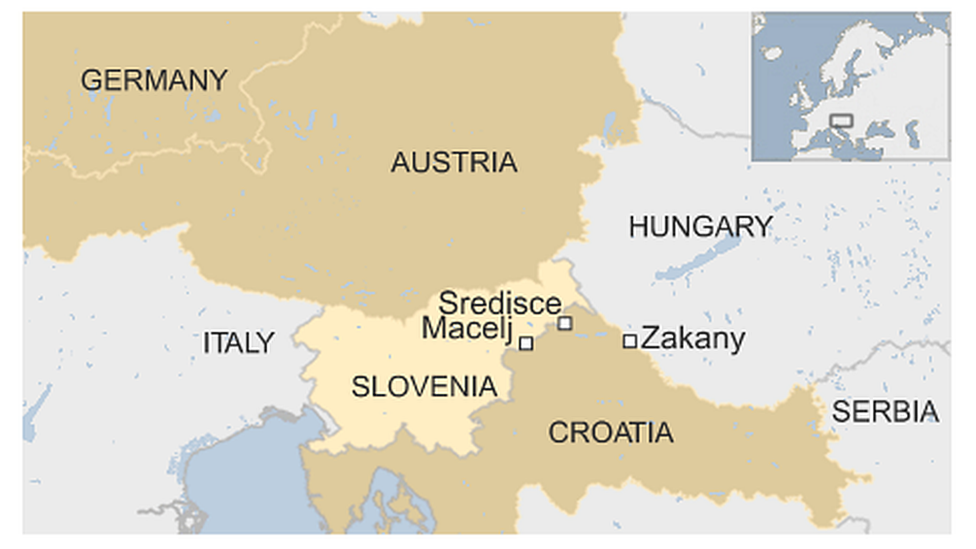
Slovenia's Prime Minister Miro Cerar, speaking after a meeting of the National Security Council, said the government had decided "to include the army in helping police".
But he insisted: "Slovenia is not in a state of emergency."
"We are trying to calm things down as best we can. We will try to manage the situation on the border so that the rest of the country is not affected. The country needs to function normally."
The past month has seen some 3,000 migrants pass through Slovenia, Reuters news agency reported. Slovenia, which has a population of two million has said it was in a position to accommodate up to 8,000 migrants per day.
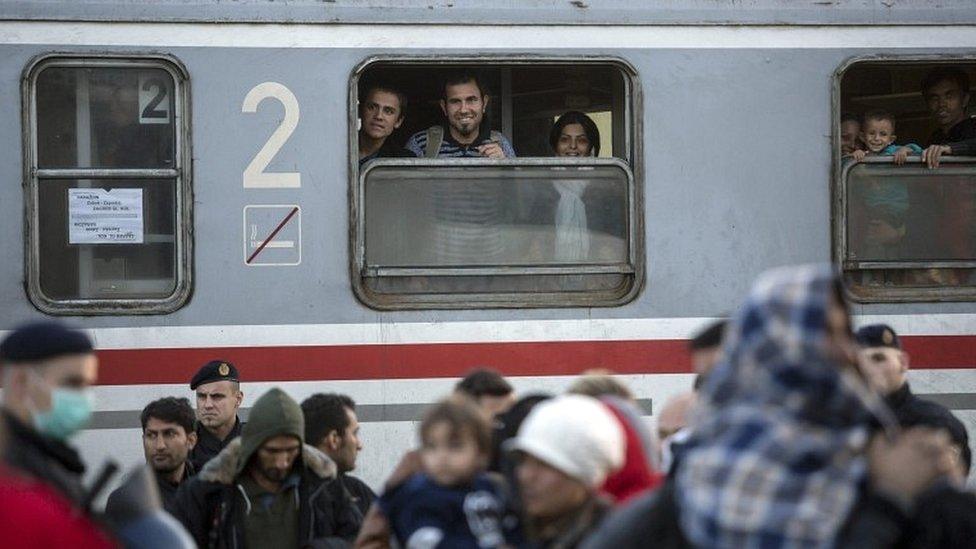
A train carrying nearly 2,000 migrants pulled in at Cakovec to send them on different journeys towards the Slovenian border
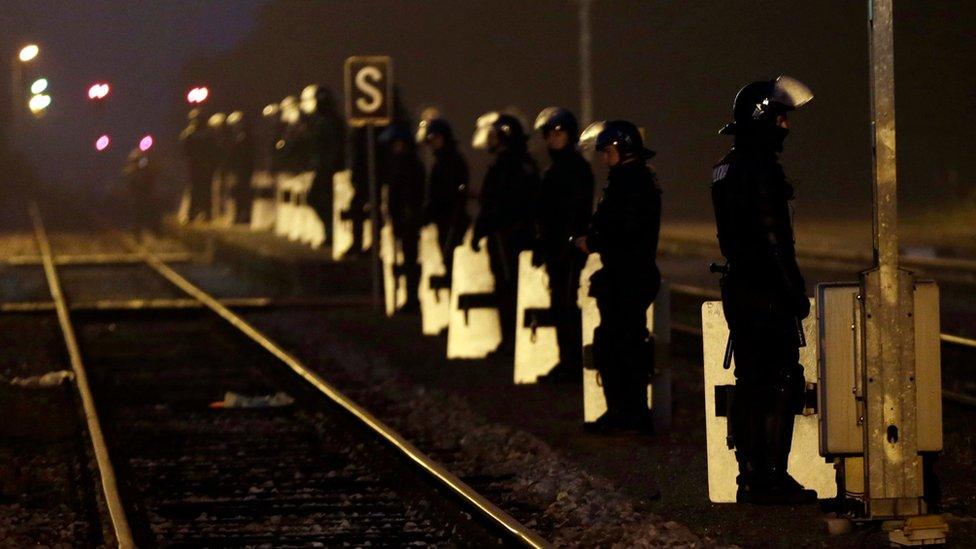
Slovenian riot police wait in Sredisce ob Dravi on the Croatian-Slovenian border for a train carrying migrants
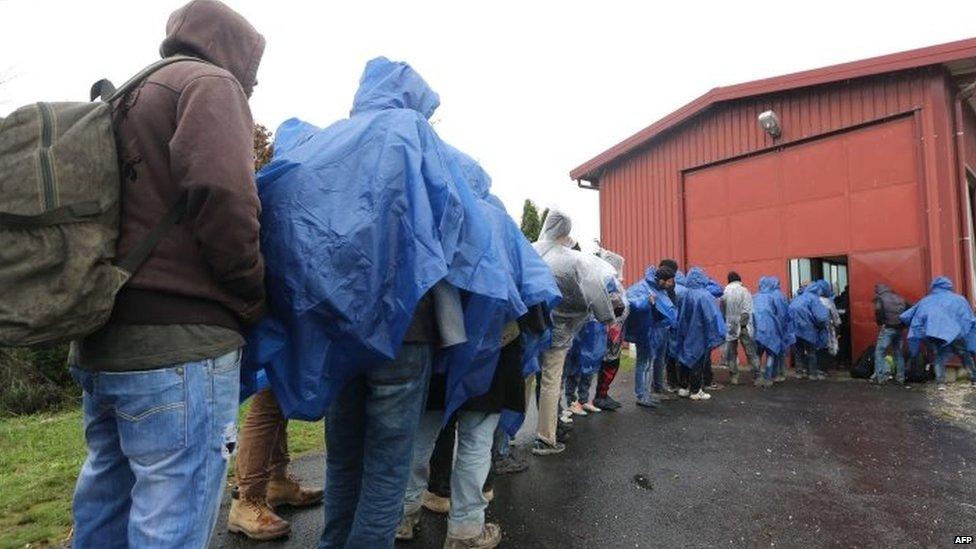
Migrants in Slovenia have to register before they can move on to Austria
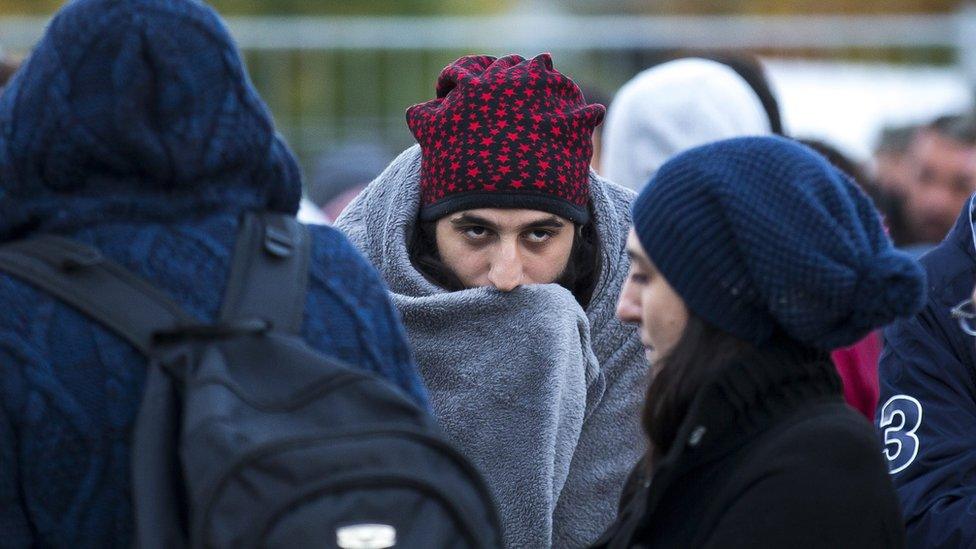
These migrants arrived in Austria after crossing Slovenia
Hundreds of refugees were bussed across Croatia on Saturday, from its border with Serbia to its border with Slovenia.
A train carrying 1,800 migrants arrived at the Croatian town of Cakovec and they were separated into groups travelling to different border crossings.
The UNHCR at one reception centre on the Croatian-Slovenian border said things were "running really smoothly".
Unlike other countries, Slovenia had time to prepare... It's not perfect, but things are moving," UNHCR spokeswoman Caroline van Buren told the AFP news agency.

At the scene: BBC's Guy Delauney in Croatia
The quiet Croatian town of Cakovec is preparing for a new role - as a railhead for refugees.
Thousands of them are expected to come through here in the coming days, following Hungary's completion of a fence along its border with Croatia. Now as many as 5,000 people a day will have to use an alternative route into the Schengen area.
They will arrive by train from reception areas close to Croatia's border with Serbia. Then they will be split into groups. Some will go by bus to the border crossing with Slovenia at Macelj. But the majority will travel on by train to another crossing at Sredisce ob Dravi.
Red Cross and UNHCR workers welcomed those who arrived on Saturday afternoon - as an already long journey has become that little bit more complicated.
Can deeds match words?: The challenges ahead for the EU and Turkey
The pull of Europe: Five migrant stories
Merkel under pressure: Chancellor's migrant policy faces criticism at home
Focus on Turkey: Why the EU views Syria's northern neighbour as key
Crisis in graphics: Migration numbers explained

Some 5,000 to 8,000 people had been allowed to cross Hungary every day, without registration, bound for Austria.
But late on Friday, several hundred migrants became the last to pass from Croatia into Hungary at the border village of Zakany. "Closure!" a soldier shouted after they passed across.
Hungary said it shut the border with Croatia after European Union leaders failed to agree its plan to send a force to prevent migrants reaching Greece.
Hungary's closure of its border with Croatia came just a month after it shut its frontier with Serbia, which was another transit route to Western Europe.
Hungarian Foreign Minister Peter Szijjarto said border controls with Slovenia would also be temporarily reinstated to safeguard Hungary from a "mass wave of unidentified, uncontrolled migrants."
Hungary and Slovenia are both part of the passport-free Schengen zone, but Croatia is not.
Migrants arriving in Europe
615,895
arrived by sea so far in 2015
216,054
arrivals for whole of 2014
-
475,499 Turkey to Greece
-
137,500 Libya & Tunisia to Italy
-
2,797 Morocco to Spain
-
99 Libya to Malta


Have you been affected by the migration crisis? You can email haveyoursay@bbc.co.uk, external with your experiences.
Please include a contact number if you are willing to speak to a BBC journalist. You can also contact us in the following ways:
Whatsapp: +44 7525 900971
Tweet: @BBC_HaveYourSay, external
Send an SMS or MMS to 61124 or +44 7624 800 100